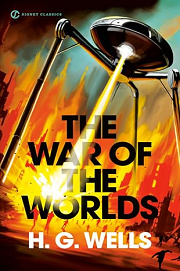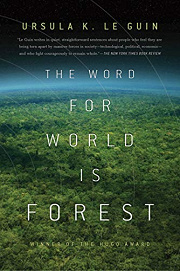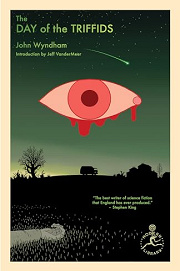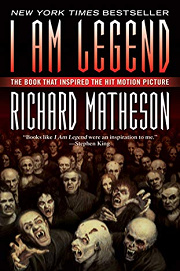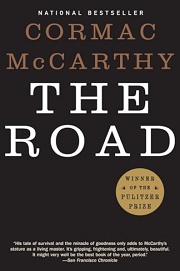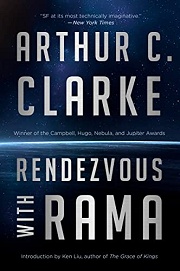Share your thoughts in a quick Shelf Talk!
War of the Worlds by H. G. Wells
Metal tripods stride out of falling stars, and humanity’s assumptions about mastery and progress crumble in the face of a merciless intelligence. Taut, relentless, and eerily plausible, War of the Worlds remains the definitive alien-invasion classic that still quickens the pulse.
Have you read this book? Share what you liked (or didn’t), and we’ll use your answers to recommend your next favorite read!
Love War of the Worlds but not sure what to read next?
These picks are popular with readers who enjoyed this book. Complete a quick Shelf Talk to get recommendations made just for you! Warning: possible spoilers for War of the Worlds below.
In War of the Worlds, did you enjoy ...
... a sharp, unsettling critique of imperialism refracted through human–alien contact?
The Word For World Is Forest by Ursula K. Le Guin
If what gripped you in H. G. Wells’s story was how the Martians mirror a pitiless imperial power—steamrolling Woking with heat-rays as if Britain’s empire had come home—then Le Guin’s Athshe becomes an arresting echo. In The Word for World Is Forest, the Terran colonizers—especially the brutal Captain Davidson—treat the forest world as a resource, until Selver and his people push back. That same moral inversion you felt when the Martians culled humans as specimens is here, turned into a sustained, piercing confrontation with conquest and resistance.
... ground-level, day-by-day survival after a catastrophic upheaval in England?
The Day of the Triffids by John Wyndham
If you loved the tense scramble through shattered suburbs—the narrator dodging tripods, hiding in ruined houses with the terrified curate, and picking a path across a transformed Surrey—Wyndham’s The Day of the Triffids delivers that same boots-on-the-pavement urgency. Bill Masen wakes to a world blinded by a strange meteor shower and must navigate London’s collapse while avoiding the lethal triffid plants. Like the flight past the red weed and black smoke, every choice feels immediate, practical, and perilous.
... a solitary, matter-of-fact first-person chronicle of the end of the world?
I Am Legend by Richard Matheson
If the intimate voice of Wells’s unnamed narrator drew you in—his plainspoken account of fleeing Woking, witnessing the Thunder Child’s doomed stand, and calculating each risky move—Matheson’s I Am Legend will resonate. Robert Neville documents his routines with grim precision: fortifying the house, testing for cures, and bracing for night as the infected mass outside taunts him. It’s that same confessional immediacy you felt when the narrator hid with the artilleryman and tallied what survival would actually cost.
... a bleak, unflinching tone that stares straight into collapse and keeps walking?
The Road by Cormac McCarthy
If the stark dread of War of the Worlds stuck with you—the black smoke drifting over fields, the desolate marches between ruined towns, the numb cataloging of loss—The Road pushes that mood to its limit. A father and son trudge through ash and scarcity, choosing humanity when it’s hardest. Like Wells’s narrator facing the silent tripods after the Martians fall, the book lingers on what remains after terror: hunger, memory, and the thin line between despair and stubborn hope.
... the awe of confronting inscrutable, vastly advanced alien engineering?
Rendezvous with Rama by Arthur C. Clarke
If the towering tripods, the heat-ray’s impossible reach, and the planet-spanning red weed gave you that heady jolt of cosmic scale, Clarke’s Rendezvous with Rama is pure wonder. A human crew boards a 50-kilometer alien cylinder, exploring frozen seas, self-illuminating cities, and systems that dwarf human understanding. It’s the same thrill you felt when Wells unveiled machines and biology beyond Victorian science—only here the mystery keeps deepening with every kilometer.
Unlock your personalized book recommendations! Just take a quick Shelf Talk for War of the Worlds by H. G. Wells. It’s only a few questions and takes less than a minute.
